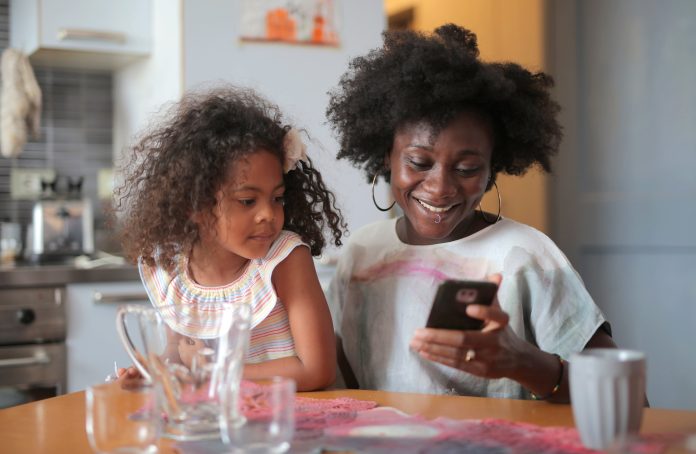
By
$10,000 — that is roughly how much the average American family reported spending on childcare in 2020. That figure represents more than 10% of the median income for a married couple, and for single parents, that figure represents more than 35% of the median income.
At age 21, Kenita Smith found out firsthand how tough it is to survive financially as a single parent. She was attending Clark Atlanta University when she gave birth to her eldest son. For a long time, Smith felt unsure if she could juggle being a single parent and graduate — but she knew that a degree would offer her growing family greater opportunities.
It took Smith 10 years to complete her bachelor’s degree in business administration and healthcare, an experience that would forever shape her life. In addition to becoming a mother, she became an activist working to ensure that other single parents have the resources to complete their education and meet their financial goals while raising children.
Smith founded Helping Other People be Empowered (H.O.P.E) in 2007 to “empower, encourage, and equip low-income single parents to obtain a college degree, develop life skills, and be self-sufficient” by providing counseling, success coaching, and financial assistance for housing and childcare, teaching financial literacy, and serving as a facilitator between families and community resources.”
“Our organization focuses on single moms and fathers,” Smith says. “Helping the parents first helps the well-being of the child.”
Through providing counseling and financial assistance for necessities like rent, food, and childcare, H.O.P.E. works to give single parents space to plan thoughtfully for their futures and the success of their families. Each H.O.P.E participant is expected to complete a degree, find employment, and develop a financial plan.
Helping the parents first helps the well-being of the child.
KENITA SMITH, H.O.P.E FOUNDER
In the face of rising inflation, more and more families are struggling to support themselves. A 2022 NPR/Robert Wood Johnson Foundation/Harvard T.H. Chan School of Public Health poll shows that Black Americans have been especially hit hard by raising prices. 58% of Black respondents said they do not have enough emergency savings to cover at least one month of their expenses, and 32% of respondents have serious problems affording food. Additionally, 16% of Black renters say they have been evicted or threatened with eviction in the past year, compared to 9% of white renters.
Through education, Smith believes Black single parents can gain renewed self-confidence, which they can pour into their children.
Since its founding, H.O.P.E. has grown from serving four participants to now having served over 100 single parents and almost 300 children. Smith says 79% of H.O.P.E. participants have successfully completed their program by developing financial savings, completing their degrees, and fostering their independence.
While many think of single parents as a women-dominated group, Smith says that there are also a growing number of single fathers involved in H.O.P.E.
“Our organization focuses not only on single moms but also helping single fathers,” Smith says. “There is a growing population of single fathers that have custody of their children, and they are also in school. Many of them don’t look for the resources out there, but we are a resource for them as well. Black men need to graduate from college, or find a trade, and be financially successful, too.”
Single parents looking to connect with H.O.P.E can apply for assistance on their website. New participants are accepted twice a year.
“Having that degree because we were always denied that opportunity gave us a sense of self-worth and gave us a sense of empowerment,” Smith says. “For African Americans, it’s very important to have education because ignorance keeps you enslaved and oppressed, but education liberates.”


